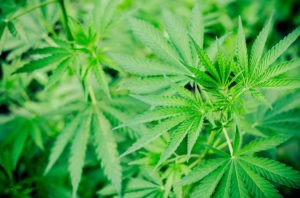By Tony O’Reilly-
The High Court has began hearing a case by a businessman who has challenged the ban on products with principal psychoactive constituent of cannabis. A test action challenging Ireland’s outright ban on the sale of any products containing the principal psychoactive constituent of cannabis, has opened before the High Court.
The action has been brought by Andrius Rogusas from Dundalk, who on October 21, 2020, had goods, namely oils that he imported from Slovenia, seized by Customs on the basis they were prohibited by national legislation.
According to him, the goods in question were legally made in another EU country, and contained less than 0.2% Tetrahydrocannabinol (THC), which is the psychoactive constituent of cannabis, and they do not constitute narcotic drugs.
Mr Rogusas further claims that Ireland’s 1977 Misuse of Drugs Act containing an outright ban on all products with any amount of THC, is contrary to EU laws concerning the free movement of goods. The Act imposes a complete ban on the possession, supply, manufacture, import and export of controlled drugs except as allowed by regulations or by licence from the Secretary of State.
He further claims that a decision of the Courts of Justice of the European Union allows products with less than 0.2% THC to be manufactured and sold within the EU, and that such products cannot be completely banned.
Under the law, the production, supply and possession of that drug is either wholly unlawful or unlawful except for purposes of research or other special purposes
Only with a licence or other authority issued by the Secretary of State, can such a drug be lawful.
Products, including those containing THC, can only be banned on public health grounds on the grounds of up-to-date scientific data and assessments of said products.
The businessman has brought judicial review proceedings against the Minister for Health, Minister Finance Ireland and the Attorney General, and the Revenue Commissioners. His action is among other challenges brought before the courts where the State’s ban on products containing THC have been raised.
The state argues that THC is a controlled drug, which it is fully entitled to prohibit.
In his action, the businessman seeks a declaration from the court that the absolute prohibition of all products containing any level of THC as contained in the 1977 Misuse of Drugs Act has not been determined in compliance with EU law.
He also wants the declaration to say that the State has failed to carry out the necessary assessments taking in account of the results of international scientific research to determine if the legislation is necessary.
He further seeks an order compelling the appropriate State party to carry out the necessary assessments to demonstrate and determine if the legislation banning all products with THC is required.
Opening the case, Mr Shortall said that the key legal issue in the action concerned what counsel said is an obligation by the State to carry out scientific tests and assessments of products containing THC to determine if any outright ban on these items can justified.
Counsel said that it was his client’s case that no such tests have been carried out on the products such as the one’s seized from his client. Counsel said that it has not been denied by the State that no such testing has been carried out. The respondents oppose the action.
In his submissions to the court, Rossa Fanning SC, with Bairbre O’Neill Bl, for the Ministers and the State said that his client’s position “is clear” — namely that “THC is a controlled drug.”
Counsel for the defence said the Department of Health keeps an open mind on the issue of the outright ban, and accepts that the issue is one where there has been debate.
They have pointed to recommendation by the World Health Organisation that legislation banning CBD products with 0.2% THC should be relaxed. However, bodies including a committee of the European Council that considers issues to do with narcotics rejected the WHO’s recommendation, counsel said.
Mr Fanning said the court should not be left with the impression that Ireland is out of kilter with other nations on this issue and argued that the reliefs sought by the applicant should not be granted because of the narrow findings made in one case by the CJEU.
The challenge is also being opposed on technical grounds, including that the action was brought outside of the three-month legal time limit allowed to have a decision judicially reviewed.
The hearing before Mr Justice Alexander Owens continues.




